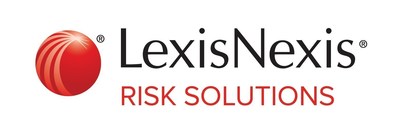LexisNexis Future of Claims Study Illustrates How COVID-19 Accelerated Claims Automation for Both Insurance Carriers and Consumers
LexisNexis Risk Solutions released its 2021 Future of Claims Report on May 3, 2021, highlighting the surge in claims automation due to COVID-19. The study indicates that claims processing accelerated from under 15% virtual pre-pandemic to about 60% now. With 92% virtual claims satisfaction, challenges remain, particularly in cybersecurity, as 61% of consumers express data privacy concerns. The report emphasizes the necessity for insurers to adapt to consumer expectations for a hybrid model of claims processing.
- 92% overall satisfaction with virtual claims processing.
- 62% of consumers find self-service claims more convenient.
- Increased comfort with automated claims among consumers, particularly younger demographics.
- 11% drop in those 'very satisfied' with recent virtual claims process since 2019.
- 61% of consumers concerned about data privacy when filing claims.
- Only 10% of insurers use two-factor identification, indicating cybersecurity issues.
Insights
Analyzing...
ATLANTA, May 3, 2021 /PRNewswire/ -- LexisNexis® Risk Solutions today released its 2021 "Future of Claims Report," revealing how the COVID-19 pandemic has accelerated claims automation. The report includes actionable insights for auto insurance carriers to improve their customer experience and turn virtual claims processing into a competitive advantage. The secret? Offering a hybrid model of self-service claims with access to a personal touch when consumers feel they need it.
The third edition of the bi-annual LexisNexis Risk Solutions study tracks the auto insurance industry landscape and identifies the latest trends in claims processing, including how the insurance industry is adapting in its automation journey and where carrier and consumer perceptions intersect and diverge on the road toward touchless claims processing. As part of its analysis, LexisNexis Risk Solutions interviewed 25 auto insurance claims executives and surveyed 1,750 auto insurance policy holders, of which 1,000 filed a claim within the last two years (a subset of which filed claims since March 2020 after lockdowns were initiated). The results of the study underscore how the pandemic has impacted the claims process and helped define a new normal.
Prior to the pandemic, less than
"While the past year has proven to be a great awakening for claims automation, we're now at a crossroad, and what will set insurers apart is a complete claims handling digital transformation and move from traditional to touchless," said Bill Brower, Vice President, Claims, LexisNexis Risk Solutions. "As we look ahead to 2025, the industry should be optimistic that we will soon see a day when the vast majority of claims will be processed virtually. But it will take hard work to get there."
The Future of Claims reveals that auto insurance carriers are on their way to touchless claims, but that insurers need to understand and cater to their customers' wants and needs when it comes to the digital claims experience to get to complete adoption of the process. Key highlights include:
- Comfort and satisfaction with the claims automation process is increasing and consumers are now seeing the advantages of self-service claims, as
62% say it's more convenient to submit a claim any time/anywhere, and55% say it enables faster claims settlement. - Younger, more technology-savvy generations are adopting faster as
68% of Millennials and53% of Gen Xers say that the pandemic has made them open to filing a claim online. - Mastering a hybrid model is the sweet spot for claims processing as it provides the benefits of automated solutions combined with access to help from a Claims Representative when consumers feel they need it, which helps avoid frustration.
- Automation has shifted from driving efficiency to driving decisioning as carriers are now leveraging the benefits of artificial intelligence and machine learning to enhance the processes for damage assessments, segmentation, estimations and payouts, in addition to intake support.
Areas of Improvement to Increase Customer Satisfaction
While adoption is increasing and overall virtual claims satisfaction remains high at
Although consumers may be most vocal about the ease of their virtual claims experiences, it's actually data privacy concerns that are their primary apprehension when it comes to adopting touchless claims. More than three in five (
"Overall, consumers are willing to move to more self-service claims options as long as the experience continues to evolve to meet their expectations and deliver the benefits of convenience and security," continued Brower. "Whether claims automation will become the new normal is still up for debate, but this past year has proven to be a powerful proof point for the viability of automated claims processing, both in terms of insurer capabilities and consumer receptivity. Now is the time for insurers to continue to develop and refine their claims handling digital transformation, before it's too late."
About LexisNexis Risk Solutions
LexisNexis® Risk Solutions harnesses the power of data and advanced analytics to provide insights that help businesses and governmental entities reduce risk and improve decisions to benefit people around the globe. We provide data and technology solutions for a wide range of industries including insurance, financial services, healthcare and government. Headquartered in metro Atlanta, Georgia, we have offices throughout the world and are part of RELX (LSE: REL/NYSE: RELX), a global provider of information-based analytics and decision tools for professional and business customers. For more information, please visit www.risk.lexisnexis.com and www.relx.com.
Media Contacts:
Rocio Rivera
LexisNexis Risk Solutions
Phone: +1.678.694.2338
rocio.rivera@lexisnexisrisk.com
Mollie Holman
Brodeur Partners for LexisNexis Risk Solutions
Phone: +1.646.746.5611
mholman@brodeur.com
![]() View original content to download multimedia:http://www.prnewswire.com/news-releases/lexisnexis-future-of-claims-study-illustrates-how-covid-19-accelerated-claims-automation-for-both-insurance-carriers-and-consumers-301281510.html
View original content to download multimedia:http://www.prnewswire.com/news-releases/lexisnexis-future-of-claims-study-illustrates-how-covid-19-accelerated-claims-automation-for-both-insurance-carriers-and-consumers-301281510.html
SOURCE LexisNexis Risk Solutions








